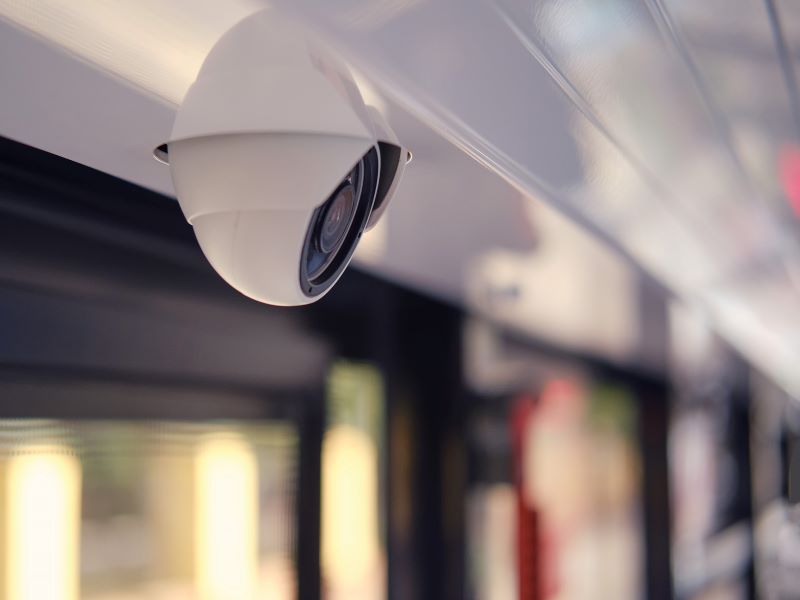
[ad_1]
We’ve seen motion by international leaders to make provide chains extra resilient and safe applied sciences important to nationwide pursuits, resembling US banning excessive finish chip fabrication know-how exports to China and negotiating agreements with Japan and Netherlands.
We have additionally watched as points round Chinese know-how abound, from TikTok consumer knowledge being accessible in China to Huawei bans.
Even within the final week, we’ve discovered greater than 900 Chinese-made safety cameras in Australian authorities buildings, whereas the United States has shot down Chinese ‘spy’ balloons.
However, till now, we haven’t had a lot concept what Australians, Americans and the Japanese actually take into consideration belief and mistrust in know-how and the potential for ‘decoupling’.
The United States Studies Centre (USSC) performed a public opinion survey in late 2022 within the United States, Australia and Japan, to grasp the general public sentiment in every nation on quite a lot of points.
This beforehand unreleased polling knowledge reveals the depth of concern about Chinese know-how amongst Australian, American, and Japanese populations, and throughout a number of knowledge factors. It additionally reveals assist for steady and even elevated nationwide restrictions on Chinese know-how and deep mistrust and concern about Chinese cell gadgets.

Australian authorities official and defence buildings have this month been discovered to have Chinese surveillance cameras that are banned within the United States and United Kingdom.
Our polling knowledge reveals public sentiment is worried that Chinese know-how poses a menace to nationwide safety. All three publics agreed that present restrictions on Chinese companies ought to both proceed (32–38 per cent throughout international locations) or enhance (37–42 per cent) — together with these companies supplying telecommunications merchandise and growing future tech resembling quantum and synthetic intelligence. Less than 10 per cent in any nation needed restrictions decreased.
Overwhelming ranges of public assist for broadening know-how collaboration amongst allies, particularly the United States, Australia and Japan are subsequently unsurprising. The overwhelming majority (70 per cent or extra) of respondents within the United States, Australia and Japan wish to see higher collaboration with allies on points round local weather change and rising applied sciences like synthetic intelligence, quantum computer systems and semiconductor manufacturing.
If we wish to unleash this trilateral enthusiasm for collaboration, public-private partnerships can be key, with a lot of the experience and scale essential for this work — growing superior capabilities and rising applied sciences — coming from trade.
In a geopolitical sense, ‘the Indo-Pacific region is defined increasingly by a multipolarity.’ In know-how adoption, the alternatives are starker.
Supply chains are international in nature that means that alignment of views amongst allies is essential as seen by US-Japan-Netherlands settlement on semiconductor export controls.
Nevertheless, most applied sciences are designed, manufactured, and/or up to date by both the United States or China, from particular person cell phone handsets to nationwide telecommunications infrastructure and weapons techniques.
Decoupling digital innovation, know-how and knowledge flows seen to be important to nationwide safety is one factor, however particular person consumer alternative preferencing US know-how provides a special dimension to the dialog.
Across a number of knowledge factors this polling knowledge reveals that respondents from all international locations are involved with know-how coming from China and like US know-how. A slight majority of Australian voters indicated they don’t belief or largely don’t belief know-how from China.
Japanese respondents had been probably the most distrusting of Chinese know-how (83 per cent), adopted by the US (68 per cent) and Australia (54 per cent). Across all three international locations, there was a correlation between age and belief, with older residents (65 and older) putting much less belief in Chinese know-how.
It is tough to separate said intention and motion besides, these figures are startling. They present a slim majority of voters from all age teams and international locations polled are under no circumstances prepared to obtain Chinese apps.
In distinction, a overwhelming majority of Australian voters indicated they totally or largely belief know-how from the United States with a small however nonetheless sizeable variety of respondents (20 per cent) indicating they largely or totally don’t belief tech from the United States.
In this vein, USSC polling knowledge reveals a exceptional variety of respondents from Australia, in addition to the United States and Japan, are prepared to pay extra for know-how not from China. As my colleagues Jared Mondschein and Victoria Cooper lately revealed, greater than 70 per cent of Americans and Australians would pay $500 extra for a telephone not made in China.
This polling reveals concern from a person consumer perspective, with a willingness to pay extra for smartphone know-how not made in China, decrease ranges of belief in Chinese know-how in comparison with American know-how, and decrease willingness to obtain Chinese purposes in comparison with US-owned purposes. Whilst it’s laborious to know what number of of those said intentions will translate to motion, it however reveals a transparent particular person desire for know-how with a trusted lineage.
What we’re more likely to see is a rise in tough nationwide safety conversations round trusted — and distrusted — know-how in addition to growing consumer demand for applied sciences that hold their knowledge protected, are created by trusted entities, are capable of be regulated, and have safeguards exist to mitigate hurt.
Whilst governments talk about the viability of decoupling applied sciences, maybe customers are making the choice for them. Technology mistrust is, in actual fact, the true decoupling subject we face at present.
Dr Miah Hammond-Errey is the director of the Emerging Technology Program on the United States Studies Centre on the University of Sydney.
Do you realize extra? Contact James Riley by way of Email.
[adinserter block=”4″]
[ad_2]
Source link